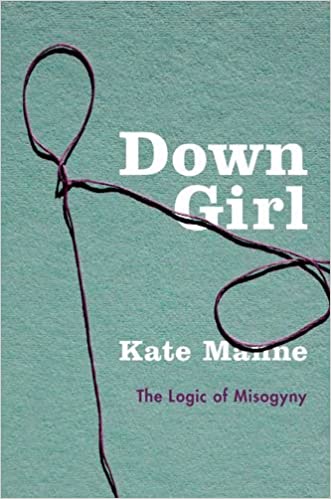Down Girl

Full Title: Down Girl: The Logic of Misogyny
Author / Editor: Kate Manne
Publisher: Oxford University Press, 2017
Review © Metapsychology Vol. 22, No. 10
Reviewer: Hennie Weiss
In Down Girl: The Logic of Misogyny, Kate Manne provides the reader with an understanding of the nature of misogyny along with an extended definition of misogyny. According to Manne, misogyny is not only a hatred towards women, but it is a system operating within the patriarchal system meant to subordinate women and uphold male dominance. In doing so, Manne talks about various ways in which misogyny operates, from domestic violence/ intimate partner violence and the issue of strangling, to domestic violence among political leaders and the subsequent shaming and silencing of women whom speak up. Manne then moves to discussing certain events that point to the system of misogyny, such as the Isla Vista Killings and the words and actions of the perpetrator Elliott Rodgers, to Rush Limbaugh’s attack on Sandra Fluke, Donald Trump (along with Puzder and Bannon), the Daniel Holtzclaw case, and Brock Turner.
Manne believes that misogyny is political in nature and that it has a function in society of not only maintaining patriarchal control, but also putting and keeping women in their place, as well as rewarding gender conforming behavior and behavior that does not challenge the nature of patriarchy. According to Manne, sexism and misogyny are different but may work in concert. Sexism is meant to focus on sex differences and shares the common purpose of misogyny, which is maintaining and restoring the current societal order, and that sexist ideology is used in service of misogynist ends.
Ways in which such an order is maintained is seen in victim blaming of women, in maintaining that women owe men, in terms of services, behaviors and societal situations. As such, we reward women for “traditional” behavior, and punish them for behavior that seems to be out of the realm of how women should act, behave and think.
What is very interesting if how Manne describes the notion of the woman as a “giver”, and how we hold women to certain standards, we punish them for behaviors that we often celebrate in men, such as being forward, wanting success and being outspoken. Manne uses examples of Hillary Clinton and Julia Gillard to examine how these women in powerful and important positions are viewed and judged as callous and hostile, yet less competent and trustworthy than their male counterparts, without there seeming to be a reason except the fact that they are women. The same is often true in situations relating to domestic violence and sexual assault where the actions of the female victims are judged harshly and are highly criticized. For example, if a woman is not viewed as completely innocent (she had been consuming alcohol at the time of her sexual assault, or she did not report a domestic assault, or even stayed with the perpetrator for some time) the actions and agenda of the woman is often criticized as in implying that she was lying, that she wants attention, and that there is a financial motive or gain for her.
What is very impressive and at the same time interesting about Down Girl is Manne’s ability to tie together the examples of misogyny to our culture at large and to do so in a way that clearly depicts and describes the notion of misogyny in a tangible way. As such, Manne has written a book that digs deep into the culture of misogyny, highlighting the notion of how misogyny operates both among the “everyday” man, as in the case of Elliott Rodgers, to very powerful and influential men in society such as Rush Limbaugh and Donald Trump. The nature of Down Girl is philosophical, but Manne is able to describe and tie philosophical thoughts and theory in with societal issues in a way which makes the book accessible to most readers.
© 2018 Hennie Weiss
Hennie Weiss has a Master’s Degree in Sociology from California State University, Sacramento. Her academic interests include women’s studies, gender, sexuality and feminism.
Categories: Ethics
